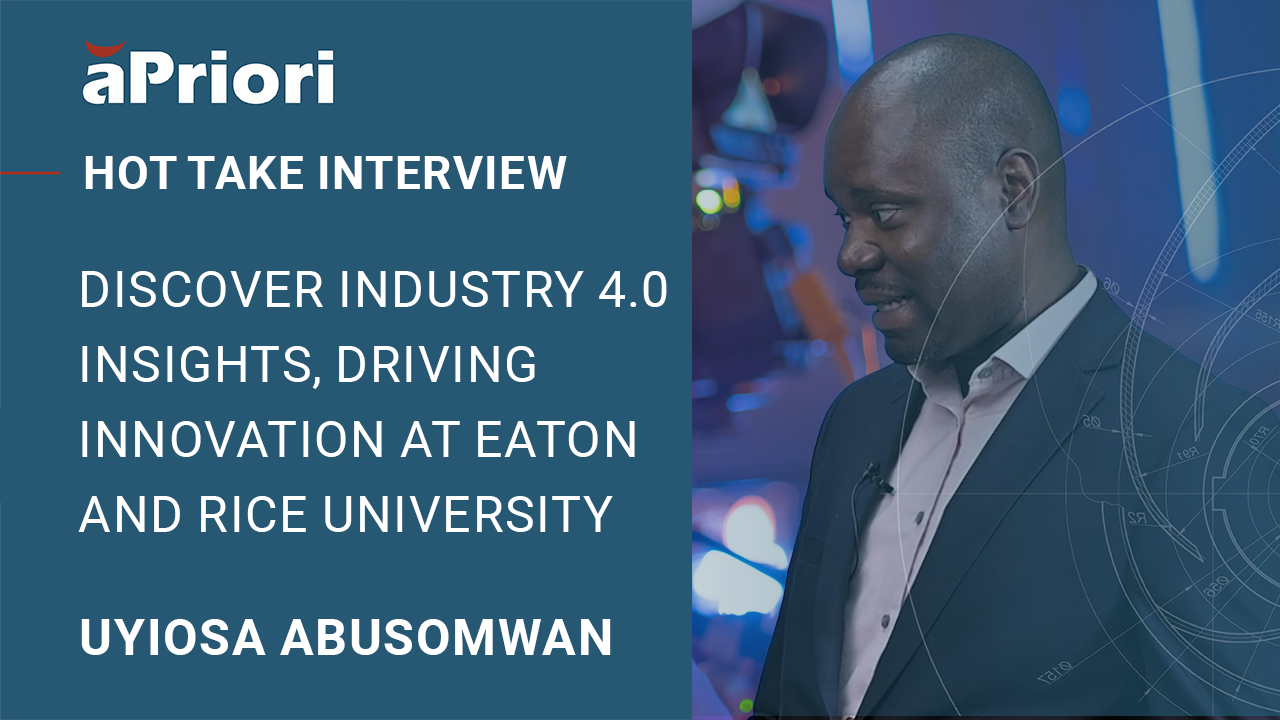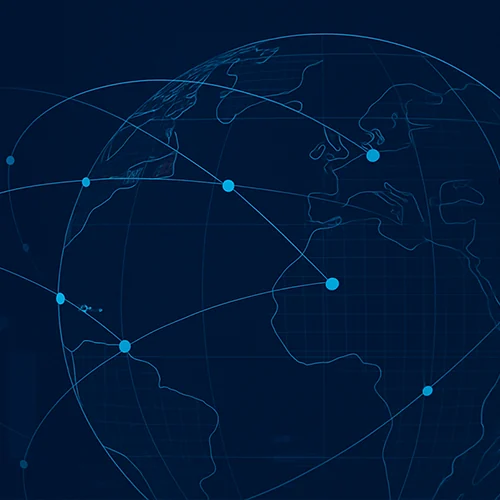Leah Archibald: You have been working not only on digital transformation at Eaton, but you’re also teaching the next generation how to use technology in product development. Can you tell me a little bit about that?
Uyiosa Abusomwan: So the opportunity came up two years ago at Rice University for me to be part of the Masters of Engineering Management and Leadership program. And I’m very excited to teach Product Management in Industry 4.0 there.
Leah Archibald: Tell us what you really mean by 4.0.
Uyiosa Abusomwan: Yes. So, it’s really the fourth industrial revolution. So the first industrial revolution as we know it helped move us away from agriculture. And the second industrial revolution happened. The third industrial revolution is computers and the rise of IT. And the fourth industrial revolution is where now we have big data, we have AI, we have additive manufacturing, and all of this, those are just three example technologies that are transforming how we do business, how we create products, how we work, and how we do things.
Leah Archibald: Now, many manufacturing companies are just starting to figure out how to use data to transform their practices. How are you a step further teaching other people how to do this?
Uyiosa Abusomwan: Oh, that’s a very good question. So, again, if you think back, when steam engine came about, and people started using it to harvest crops, or to plant, or to weed The adoption really came about based on organizations that saw the need or farmers that saw the need to do this, and then farm at scale. Today, organizations are seeing the value in not just collecting data, but using that data to drive more business opportunities for the organization. For us at Rice University, what we’re doing is really looking at the next generation. With all the data that we’re collecting, how are engineers going to use that data?
Uyiosa Abusomwan: For example, in my talk yesterday, I shared how Eaton is using simulation data to transform how we do product development. The ability to trade off between all these design constraints, and not just trade off from a physics standpoint, but also trade off with cost, trade off with manufacturability, and now with sustainability, trade off on sustainability as well. So our ability to do that really relies on running hundreds of simulations programmatically, and that allows you to generate a lot of data. We started a conversation about data. So with all that data that you generate now, ’cause now you can do things automatically, the next thing is what insights can you get from it? Can you train an AI algorithm to be able to predict costs?
Leah Archibald: So this is where we’re getting into the 4.0…
Uyiosa Abusomwan: Absolutely.
Leah Archibald: Industry, where you’re taking this big data and getting to the next level, which is, I think you’re telling me this is another industrial revolution.
Uyiosa Abusomwan: It is absolutely what Industry 4.0 is. Industry 4.0 is the fourth industrial revolution. There is an idea out that we’re experiencing Industry 5.0, where human comes back in the loop, right? But if we look at how long it takes for a digital transformation or for industrial revolution to take place, scientifically, I believe, I’m one of those that believe we’re still in Industry 4.0 where the big data, additive manufacturing, AI, blockchain, and cloud computing and all this capabilities are coming together to transform how we create products.


